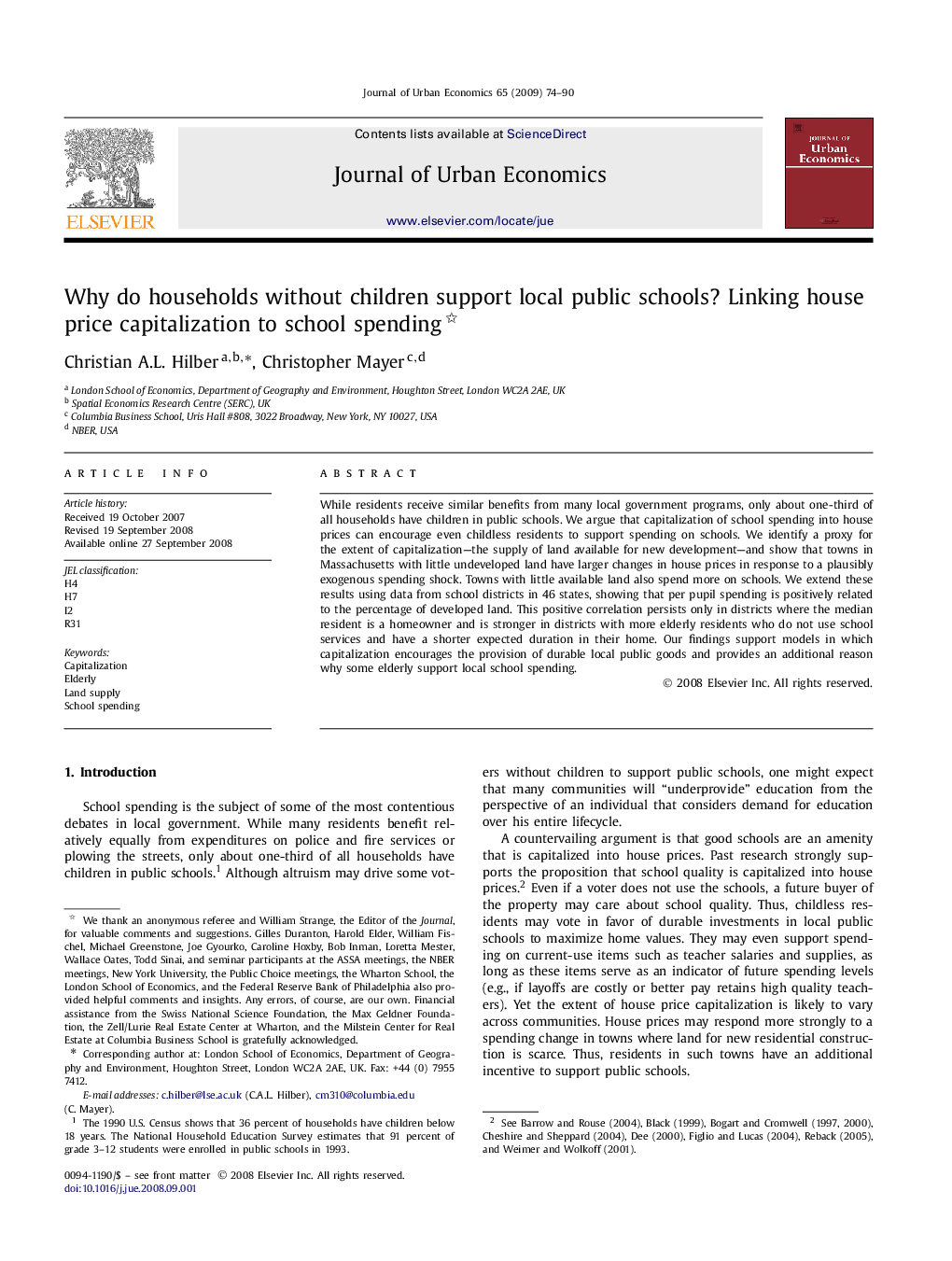| Article ID | Journal | Published Year | Pages | File Type |
|---|---|---|---|---|
| 971971 | Journal of Urban Economics | 2009 | 17 Pages |
While residents receive similar benefits from many local government programs, only about one-third of all households have children in public schools. We argue that capitalization of school spending into house prices can encourage even childless residents to support spending on schools. We identify a proxy for the extent of capitalization—the supply of land available for new development—and show that towns in Massachusetts with little undeveloped land have larger changes in house prices in response to a plausibly exogenous spending shock. Towns with little available land also spend more on schools. We extend these results using data from school districts in 46 states, showing that per pupil spending is positively related to the percentage of developed land. This positive correlation persists only in districts where the median resident is a homeowner and is stronger in districts with more elderly residents who do not use school services and have a shorter expected duration in their home. Our findings support models in which capitalization encourages the provision of durable local public goods and provides an additional reason why some elderly support local school spending.
